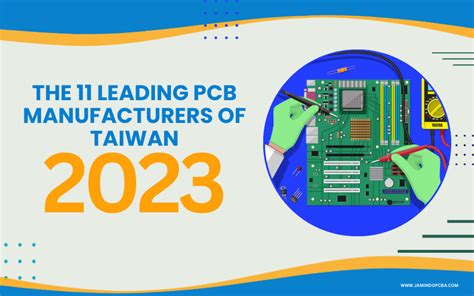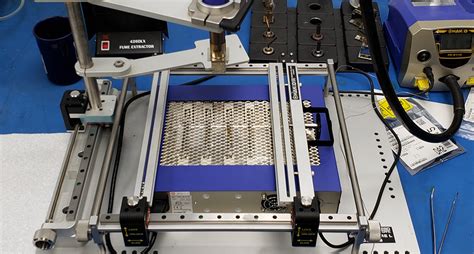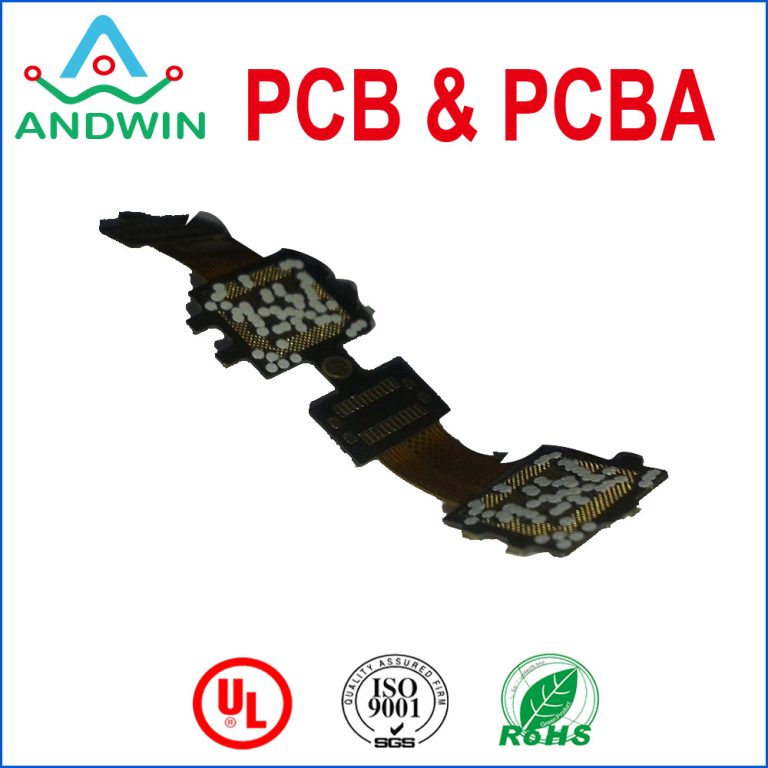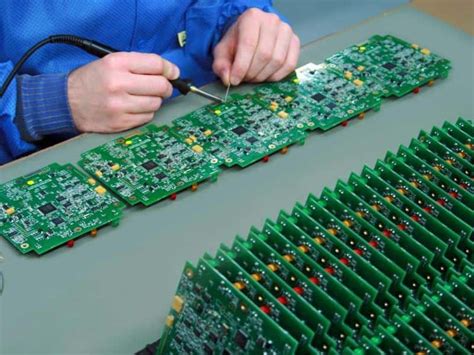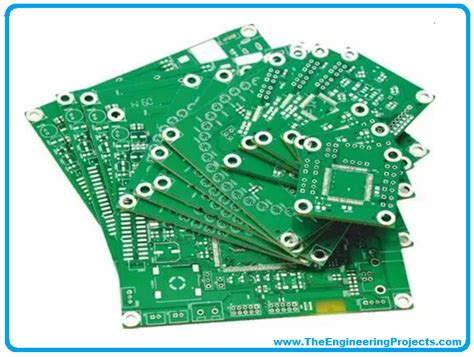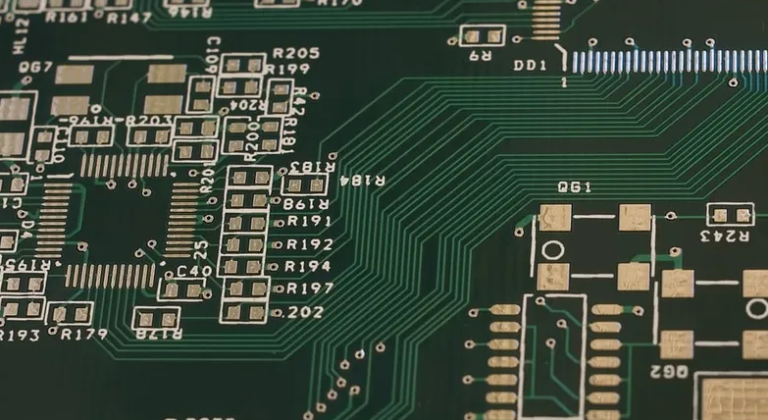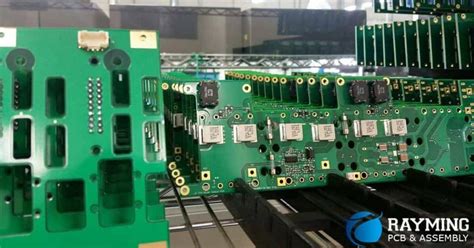Top Largest PCB Manufacturers Shaping the Electronics Industry

Key Takeaways
In the dynamic world of electronics, understanding the landscape of pcb manufacturing is crucial. The largest PCB manufacturers play a pivotal role in shaping this industry, influencing everything from design to production efficiencies. When considering pcb manufacturing companies, it’s important to evaluate several factors, such as their innovative technologies and ability to adapt to market demands. The evolving landscape of the pcb manufacturing business has led to a variety of options, enabling customers to find partners that align with their specific needs. Furthermore, understanding pcb manufacturing costs is essential for making informed decisions that could impact your project’s budget and timeline. Innovations in materials and processes are constantly driving advancements in this sector, ensuring that you have access to the best solutions available. By staying informed about these key players and their contributions, you will be better equipped to navigate the complexities of the electronics industry effectively. For more in-depth insights and information on PCB solutions, check out Andwin PCB.

Introduction to the PCB Industry and Its Importance
The PCB industry is a cornerstone of modern electronics, serving as the backbone for almost every electronic device you use today. From smartphones and computers to medical devices and automotive electronics, printed circuit boards (PCBs) are vital in ensuring that these technologies function correctly. The significance of pcb manufacturing cannot be overstated, as it plays a crucial role in determining the performance, durability, and cost-effectiveness of electronic products.
When exploring pcb manufacturing companies, you’ll find that they vary significantly in capabilities, with some specializing in high-volume production while others may focus on niche markets requiring more intricate designs. Understanding the dynamics within this industry can help you appreciate the delicate balance between innovation and cost—a critical factor for businesses looking to maintain competitiveness.
Furthermore, as market demands evolve, elucidating how manufacturers address pcb manufacturing costs remains essential for anyone interested in the economics of electronics. The ability to reduce costs without compromising quality is a significant challenge that many in the pcb manufacturing business strive to meet.
“In an industry driven by innovation, continuously adapting manufacturing processes is key to staying ahead.”
Thus, getting acquainted with leading players and their unique approaches could provide you with insights into trends that shape not just the PCB segments but also the overarching electronics landscape.
Criteria for Selecting the Largest PCB Manufacturers
When evaluating the largest PCB manufacturers, several key criteria come into play that can significantly impact your decision-making process. First and foremost, you should consider their expertise in PCB manufacturing, which encompasses not only years of experience but also their ability to innovate and adapt to new technologies. The quality of products they deliver is crucial; you want PCB manufacturing companies known for their adherence to stringent quality standards.
Additionally, the manufacturing cost associated with their products can greatly influence your budget, making it essential to compare pricing structures while considering the quality they offer. Flexibility in production volume is another important factor; some manufacturers may be better suited for small-batch runs, while others excel in large-scale production. Assessing the breadth of their capabilities, including the types of materials they use and the designs they accommodate, will provide insights into how well they can meet your specific needs.
Finally, consider their reputation in the PCB manufacturing business; feedback from existing customers and industry experts can give you a clearer picture of how reliable and efficient a manufacturer truly is. By keeping these criteria at the forefront of your analysis, you’ll be better positioned to choose a manufacturer that aligns with your project’s requirements and will play a pivotal role in shaping your electronic devices.

Overview of the Top Largest PCB Manufacturers
In the ever-evolving landscape of electronics, PCB manufacturing stands as a pivotal element driving innovation and functionality. The diversity and scale of pcb manufacturing companies play a significant role in shaping the technological advancements we witness today. These companies are not just manufacturers; they are strategic partners in the electronics supply chain, ensuring that devices function seamlessly. The pcb manufacturing cost can vary greatly based on factors such as complexity, volume, and materials used, reflecting the customized needs of different industries. As you explore these pcb manufacturing businesses, you’ll discover how they leverage advanced technologies to improve efficiency and sustainability while adapting to the demands of modern consumers. Understanding the profiles and strengths of these major players will give you insight into how they impact everything from mobile devices to automotive systems, illustrating their critical position in today’s high-tech world.
Innovations and Technologies Driving PCB Growth
In the rapidly evolving landscape of electronics, pcb manufacturing plays a critical role, driving advancements that enhance performance and efficiency. Numerous pcb manufacturing companies are investing in revolutionary technologies such as automation, which significantly reduces pcb manufacturing costs, while maintaining precision in production. For instance, automated assembly lines enable quicker turnaround times and higher output without compromising quality. Furthermore, the incorporation of advanced materials like flexible substrates is pushing the boundaries of design flexibility in printed circuit boards. These innovations not only meet the demands of modern electronics but also pave the way for miniaturization—allowing smaller devices to integrate more complex functionalities.
In addition to automation and advanced materials, internet of things (IoT) capabilities are permeating pcb manufacturing business practices. This integration ensures real-time monitoring and improved supply chain management, thus enhancing operational efficiency. The utilization of artificial intelligence (AI) has also emerged as a game changer by facilitating predictive maintenance and reducing operational downtimes. As you explore these technological advancements within the pcb industry, it’s crucial to recognize that they not only contribute to growth for individual pcb manufacturing companies, but they also set a benchmark that inspires further innovation across the entire sector. The synergy between technology and manufacturing is undeniably shaping the future trajectory of electronics as we know it today.
Comparative Analysis of Key Players in the PCB Market
In the rapidly evolving landscape of PCB manufacturing, understanding the competitive dynamics among the largest PCB manufacturing companies is crucial for insights into market trends and advancements. These players dominate due to their commitment to innovation, quality control, and cost-effectiveness. When you examine their pcb manufacturing business, several factors come into play—technological advancements, production capacity, geographic reach, and specialized capabilities in various sectors.
For instance, a comparative analysis often reveals that companies with a strong focus on R&D tend to lead in developing cutting-edge technologies that enhance product performance. You may notice that some of the largest firms not only cater to consumer electronics but also make significant strides in automotive and industrial applications. This diversification helps mitigate risks associated with fluctuating demand in specific sectors.
In terms of pcb manufacturing cost, economies of scale play a vital role. Larger manufacturers can leverage their extensive facilities to reduce production expenses while maintaining high-quality standards. This cost advantage enables them to offer competitive pricing, which is essential for maintaining market share and satisfying clients’ needs.
| Company Name | Market Share (%) | Innovation Focus | Target Industries |
|---|---|---|---|
| Company A | 25 | Advanced Materials | Consumer Electronics |
| Company B | 20 | Smart PCB Solutions | Automotive |
| Company C | 15 | Sustainable Manufacturing | Industrial Applications |
| Company D | 10 | Miniaturization Techniques | Aerospace |
| Company E | 5 | Flexible PCBs | Medical Devices |
By evaluating these attributes and metrics, you gain deeper insight into how each entity contributes to the overall health and development of the PCB industry. In conclusion, the interplay between these factors determines not only how individual companies thrive but also how they influence broader trends within the electronics ecosystem.
Contributions of Major PCB Manufacturers to Electronics
The impact of PCB manufacturing companies on the electronics industry is profound and multifaceted. These industry leaders have pioneered advancements that underpin the functionality and efficiency of modern electronics. By leveraging cutting-edge pcb manufacturing techniques, they not only enhance the performance of various devices but also streamline the pcb manufacturing cost through innovative processes. For instance, major manufacturers focus on refining materials and components to reduce waste and improve durability, which translates into longer-lasting products for consumers. Additionally, their commitment to research and development drives ground-breaking technologies such as flexible circuits and high-density interconnects, which are essential in meeting the demands of smaller and more powerful electronic devices. Your understanding of the pcb manufacturing business is further enriched by recognizing how these giants form strategic partnerships with technology firms to push the boundaries of what’s possible in electronic design. Ultimately, these contributions are critical, as they allow for continuous innovation within the field and ensure that electronics remain at the forefront of technological advancement.
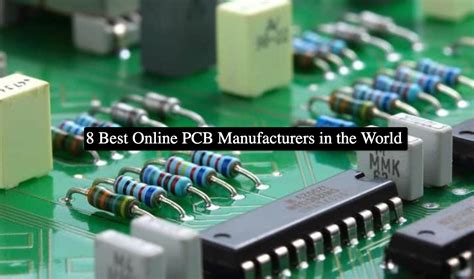
Future Trends in the PCB Industry
As you navigate the evolving landscape of PCB manufacturing, it becomes increasingly clear that innovation will play a pivotal role in shaping the future of this sector. Trends such as miniaturization and increased functionality are pushing PCB manufacturing companies to explore advanced materials, which enhance performance while reducing size. The integration of smart technologies into PCB manufacturing business practices is also making waves, as companies harness automation and artificial intelligence to streamline processes, thereby lowering the overall pcb manufacturing cost. Moreover, the growing demand for flexible circuits in consumer electronics is leading to significant advancements in fabrication techniques, allowing for greater adaptability and enhanced design capabilities. Environmental sustainability is another crucial trend, prompting manufacturers to adopt eco-friendly materials and methods, aligning with global efforts to reduce electronic waste. As you consider your place within this dynamic industry, keep an eye on these trends; they will greatly influence both your strategic decisions and overall success in the realm of PCB manufacturing.
Conclusion: The Role of PCB Manufacturers in Shaping Electronics
In the dynamic landscape of the electronics industry, PCB manufacturing serves as a foundational pillar. You might not realize it, but every time you use a gadget or electronic device, you’re relying on the intricate designs crafted by PCB manufacturing companies. These companies play a pivotal role in ensuring that devices function smoothly and efficiently. With innovations in materials and technologies, they consistently push boundaries to lower pcb manufacturing costs while enhancing performance.
As you explore this sector further, it’s essential to appreciate how pcb manufacturing not only supports traditional applications but also embraces cutting-edge trends like miniaturization and automation. The pcb manufacturing business is evolving rapidly, influenced by advancements in areas like 5G technology and electric vehicles, which demand more sophisticated and reliable printed circuit boards (PCBs). Major players in this field are not merely adapting; they are actively shaping the future of electronics through their commitment to quality and innovation. By understanding the contributions of these manufacturers, you can better appreciate the complexity and importance of PCBs in driving technological progress across various industries.

Conclusion: The Role of PCB Manufacturers in Shaping Electronics
In the rapidly evolving landscape of electronics, PCB manufacturing plays a crucial role in shaping innovation and functionality. As you navigate through the complexities of the industry, understanding the influence of PCB manufacturing companies can significantly enhance your insights. These companies not only provide essential components for electronic devices but also drive advancements in technology, cost efficiency, and production capabilities. The pcb manufacturing cost has become a critical factor for businesses striving to remain competitive while delivering high-quality products. The growth of the pcb manufacturing business hinges on their ability to adapt to market demands, innovate processes, and integrate cutting-edge technologies. By recognizing the contributions of major manufacturers, you can appreciate how they propel the entire electronics sector forward, ensuring that it meets consumer needs and anticipates future trends.
FAQs
What is PCB manufacturing?
PCB manufacturing refers to the process of designing and producing printed circuit boards, which serve as the backbone of most electronic devices. This involves various steps including layout design, material selection, and assembly.
What are the key PCB manufacturing companies?
There are several key players in the pcb manufacturing sector, such as companies recognized for their innovation and large-scale production capabilities. These pcb manufacturing companies often lead in technology advancements, ensuring high-quality and efficient production processes.
What factors influence PCB manufacturing cost?
The pcb manufacturing cost can vary significantly based on materials used, complexity of the design, volume of production, and the technology employed. Understanding these factors is crucial for businesses looking to optimize their pcb manufacturing business operations.
How can I choose the right PCB manufacturer?
Selecting the right manufacturer involves evaluating their experience, technology capabilities, quality control processes, and pricing. It’s essential to align your specific needs with what each pcb manufacturing company offers to ensure a successful partnership.
For more insights into PCB manufacturing and tailored solutions for your needs, please click here: Andwin PCB Manufacturing.

